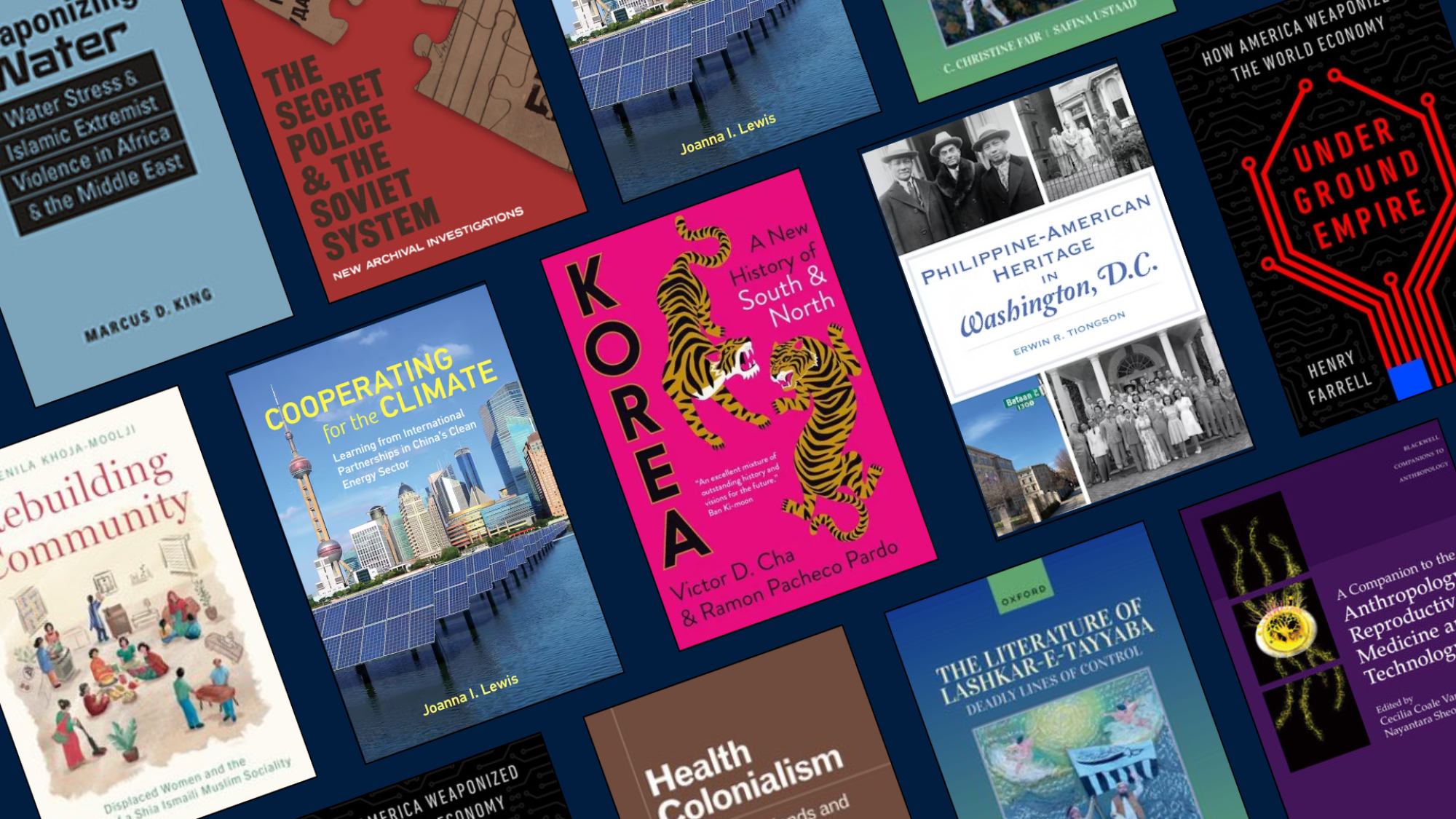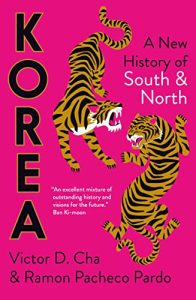In 2023, faculty members at Georgetown University’s School of Foreign Service (SFS) have produced cutting-edge books that address a diverse array of global challenges. These works offer innovative methodologies and draw on rich source material to provide fresh perspectives on diplomacy, politics, public health, anthropology, economics, history and community development. As the landscape of global issues continues to evolve, SFS professors have harnessed their expertise and research to offer profound insights.
Cooperating for the Climate: Learning from International Partnerships in China’s Clean Energy Sector (MIT Press)
Joanna Lewis
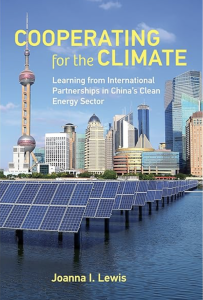
Joanna Lewis, the Provost’s distinguished associate professor of energy and environment and director of the Science, Technology and International Affairs (STIA) program, examines global cooperation in mitigating climate change in her new book. With a keen focus on China’s pivotal role in responding to climate change, Lewis uncovers the motivations, science and politics that drive collaborative efforts in clean energy technology. Drawing on her extensive expertise in the field, she provides a comprehensive account of the complexities involved, shedding light on why different partnerships yield varying political and technological outcomes.
Read more about Cooperating for the Climate.
Korea: A New History of South and North (Yale University Press)
Victor Cha
Victor Cha, Distinguished University Professor and D.S. Song-KF Endowed Chair in Government and International Affairs at SFS, joins forces with Dr. Ramon Pacheco Pardo, professor of international relations at King’s College London, in this sweeping narrative that unravels the intricate tapestry of Korean history from the late nineteenth century and Japanese occupation to BTS and Blackpink today. The authors trace the divergent stories of two Koreas, one punctuated by democratization, economic development, and cultural success; juxtaposed to the other, burdened by nuclear threats, autocratic leadership, and human rights abuses. Cha and Pacheco Pardo, drawing on their extensive research, provide a comprehensive account of a nation at the crossroads of global powers, including China, Japan, Russia and the United States. They illuminate how Korea’s destiny has been inexorably tied to its geographical position and the resilience of its leadership and society.
“The book examines the ultimate social science experiment,” says Cha. “What happens when the same people are put in two different political systems by historical circumstance and great power politics?”
Read more about Korea: A New History of South and North.
The Literature of Lashkar-e-Tayyaba (Oxford University Press)
C. Christine Fair, Safina Ustaad
C. Christine Fair, professor in the Security Studies program at SFS, teams up with co-author Safina Ustaad, a freelance translator and poet. The two embark on an exploration of Islamist militant group Lashkar-e-Tayyaba (LeT) and its extensive publications. In this pioneering volume, they curate and translate LeT’s Urdu-language materials, providing unprecedented access for the scholarly community and allowing them to more effectively combat the group’s violence. These texts, originally disseminated by the publishing group Dar al Andalus, offer insight into the group’s ideology, fundraising endeavors and recruitment strategies.
Read more about The Literature of Lashkar-e-Tayyaba.
Rebuilding Community: Displaced Women and the Making of a Shia Ismaili Muslim Sociality (Oxford University Press)
Shenila Khoja-Moolji
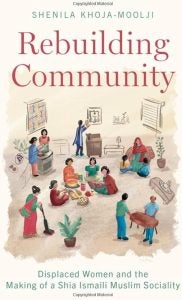 Shenila Khoja-Moolji, Hamad bin Khalifa al-Thani Associate Professor of Muslim Societies with the Prince Alwaleed Bin Talal Center for Muslim-Christian Understanding (ACMCU), examines how gender and religion intersect in the context of migration. In the book, Khoja-Moolji focuses on Muslim women who fled East Pakistan and East Africa in the 1970s, ultimately settling in North America. Through a collection of oral histories, fieldwork, and memory texts, Khoja-Moolji studies the placemaking activities through which these women forged and sustained spiritual kinship bonds across continents and across generations. By paying attention to displaced people’s own efforts, this book disrupts the conventional articulation of the figure of the refugee or migrant as a dependent and passive subject.
Shenila Khoja-Moolji, Hamad bin Khalifa al-Thani Associate Professor of Muslim Societies with the Prince Alwaleed Bin Talal Center for Muslim-Christian Understanding (ACMCU), examines how gender and religion intersect in the context of migration. In the book, Khoja-Moolji focuses on Muslim women who fled East Pakistan and East Africa in the 1970s, ultimately settling in North America. Through a collection of oral histories, fieldwork, and memory texts, Khoja-Moolji studies the placemaking activities through which these women forged and sustained spiritual kinship bonds across continents and across generations. By paying attention to displaced people’s own efforts, this book disrupts the conventional articulation of the figure of the refugee or migrant as a dependent and passive subject.
“This project was inspired by my grandmother, who in 1971, along with my mother, had to flee East Pakistan (now Bangladesh) due to civil war, finding refuge in Karachi where the Shia Ismaili Muslim community formed a web of care around them,” says Khoja-Moolji. “It was this potential loss of Ismaili Muslim women’s history—recognizing that these women’s lives and community-building efforts would disappear unrecorded and unarchived—that motivated me to write this book.”
Read more about Rebuilding Community.
Health Colonialism: Urban Wastelands and Hospital Frontiers (University of Minnesota Press)
Shiloh Krupar
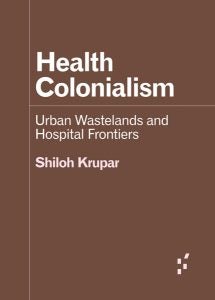
Shiloh Krupar, Provost’s distinguished associate professor in Culture and Politics, unravels the complex relationship between urban development policies and healthcare distribution. Krupar introduces the concept of “medical brownfields,” shedding light on how hospitals leverage their extensive real estate holdings to support global endeavors, from seeking international patients to establishing overseas services and specialty clinics. Through a pointed analysis, Krupar emphasizes that efforts to decolonize healthcare must scrutinize the land practices of nonprofit medical institutions and challenge the foundations of medical apartheid perpetuated by the globalization of American healthcare.
“The book invites scholars, analysts, and practitioners who focus on biotechnologies and biomedical practices to consider an unacknowledged ‘base map’ of biomedicine: health colonialism,” explains Krupar. “Excavating the relations between property, pollution, and racialized vulnerability reveals how nonprofit biomedical complexes may profit from the post-industrial blight that they supposedly eradicate, while their philanthropic global mission statements and sustainable architecture rhetorically obscure harmful effects, whether industrial waste, escalating local disease and morbidity rates, or highly unequal public access to care.”
Read more about Health Colonialism.
Underground Empire: How America Weaponized the World Economy (MIT Press)
Abraham Newman and Henry Farrell
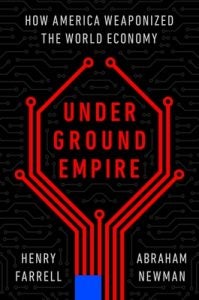
Abraham L. Newman, professor at SFS, collaborates with Johns Hopkins University colleague Henry Farrell to delve into the web of international surveillance and control that the United States has intricately woven through globe-spanning networks like fiber optic cables and clandestine payment systems. Their narrative unveils how, in the wake of 9/11, the U.S. began to weaponize these channels, initially as measures to counter terrorism. However, over time, they have become integral components of American security operations. Newman and Farrell demonstrate how Washington has deftly transformed the fundamental pathways of the world economy into instruments of dominance over foreign entities, be they rivals or allies. Underground Empire has been nominated for the 2024 Lionel Gelber Prize.
“We have entered a new world where the global economy creates vulnerabilities as well as opportunities. Our hope was both to help people understand this complex new world and to prevent policy-makers from engaging in ad hoc or crisis response decisions that might ultimately have harmful unanticipated consequences,” says Newman.
Read more about Underground Empire.
Philippine-American Heritage in Washington, DC (History Press)
Erwin R. Tiongson

Erwin R. Tiongson, deputy director of the Global Human Development (GHD) Program and teaching professor of the practice at SFS, explores how Washington holds a rich, yet often overlooked, connection with the Philippines. Within the heart of the District, one can find echoes of the Philippines’ struggle for freedom. West Potomac Park draws inspiration from Manila’s historic Luneta, and the city’s streets bear the names of pivotal Philippine battle grounds, though these landmarks often go unnoticed by guidebooks. Yet hidden in plain sight are the stories of the remarkable figures who once inhabited these spaces.
“It’s been a joy collecting all these stories over the past 10 years or so. And it’s also equally joyful being able to share these stories,” says Tiongson. “I think these stories are best preserved when we share them with other people. And as we tell and retell these stories, maybe we can all help keep them alive.”
Read more about Philippine-American Heritage in Washington, DC.
A Companion to the Anthropology of Reproductive Medicine and Technology (Wiley-Blackwell)
Cecilia Coale Van Hollen, Nayantara S. Appleton
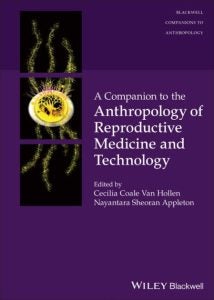 Cecilia Coale Van Hollen, a distinguished medical anthropologist and teaching professor in SFS, is the lead co-editor with Nayantara Sheoran Appleton of this handbook that offers fresh perspectives on the anthropological study of reproductive practices, medicine, technologies and interventions on a global scale. Centering the reproductive justice framework and organized thematically, the volume covers a wide range of critical topics, including pregnancy, childbirth, fertility treatments, contraception, abortion and recent issues like the impact of COVID-19 on reproduction, and egg-freezing and CRISPR technologies. It delves into complex subjects such as global reproductive health financing, migration and reproductive healthcare, medical racism, reproduction and disability, maternal mortality, reproductive cancers, epigenetics, Indigenous reproductive healthcare, the intersection of gender and sexualities with reproduction for LGBTQIA+ communities, and environmental reproductive justice.
Cecilia Coale Van Hollen, a distinguished medical anthropologist and teaching professor in SFS, is the lead co-editor with Nayantara Sheoran Appleton of this handbook that offers fresh perspectives on the anthropological study of reproductive practices, medicine, technologies and interventions on a global scale. Centering the reproductive justice framework and organized thematically, the volume covers a wide range of critical topics, including pregnancy, childbirth, fertility treatments, contraception, abortion and recent issues like the impact of COVID-19 on reproduction, and egg-freezing and CRISPR technologies. It delves into complex subjects such as global reproductive health financing, migration and reproductive healthcare, medical racism, reproduction and disability, maternal mortality, reproductive cancers, epigenetics, Indigenous reproductive healthcare, the intersection of gender and sexualities with reproduction for LGBTQIA+ communities, and environmental reproductive justice.
“As someone with thirty years of experience in this field, I was excited to produce a handbook to showcase its dynamism and breath,” says Van Hollen. “With 28 chapters on enduring and emerging topics in our field, we see this book as an essential resource for students, scholars and educators in medical anthropology, Science and Technology Studies, gender and sexuality studies, and race and ethnicity studies.”
Read more about A Companion to the Anthropology of Reproductive Medicine and Technology.
The Secret Police and the Soviet System: New Archival Investigations – Russian and East European Studies (University of Pittsburgh Press)
Michael David-Fox
Michael David-Fox, professor and Center for Eurasian, Russian, and East European Studies (CERES) director, edits this collection of insights into the role of the secret police in shaping Soviet society. Recent access to non-Russian KGB archives, particularly in Ukraine post-2015, has paved the way for unprecedented research. Beyond conventional narratives, this volume integrates the secret police into broader discussions of information, technology, economics, art and ideology, painting a comprehensive portrait of this enigmatic institution. The study’s relevance extends past the Soviet era to understanding modern-day Russia under Vladimir Putin’s leadership.
“In 2015, well before war and politics brought the curtain down on international historical inquiry in Russia, Ukraine opened another door by passing a de-communization law that opened access to the archives of the SBU, the Ukrainian security service, which inherited the KGB archives from the second most important union republic in the USSR,” David-Fox says. “I never expected when I started the book, however, that Putinism’s hard authoritarian turn in the run-up to Russia’s invasion of Ukraine in 2022 would make this historical research so tragically relevant to the present day.”
Read more about The Secret Police and the Soviet System.
Weaponizing Water: Water Stress and Islamic Extremist Violence in Africa and the Middle East (Lynne Rienner Publishers)
Marcus King

Marcus King, professor of the practice in environment and international affairs and director of the M.S. in Environment & International Affairs(MS-EIA), explores the intricate connection between water stress and the rise of Islamic extremist violence in the African and Middle Eastern regions. Specifically, King examines how groups such as ISIS in Syria and Iraq, Boko Haram in Nigeria, and al-Shabaab in Somalia have utilized water as a strategic tool to advance their political objectives in these areas. This book provides a detailed analysis of how these extremist organizations have harnessed water scarcity and resource competition to further their political agendas in these specific regions.
Read more about Weaponizing Water
